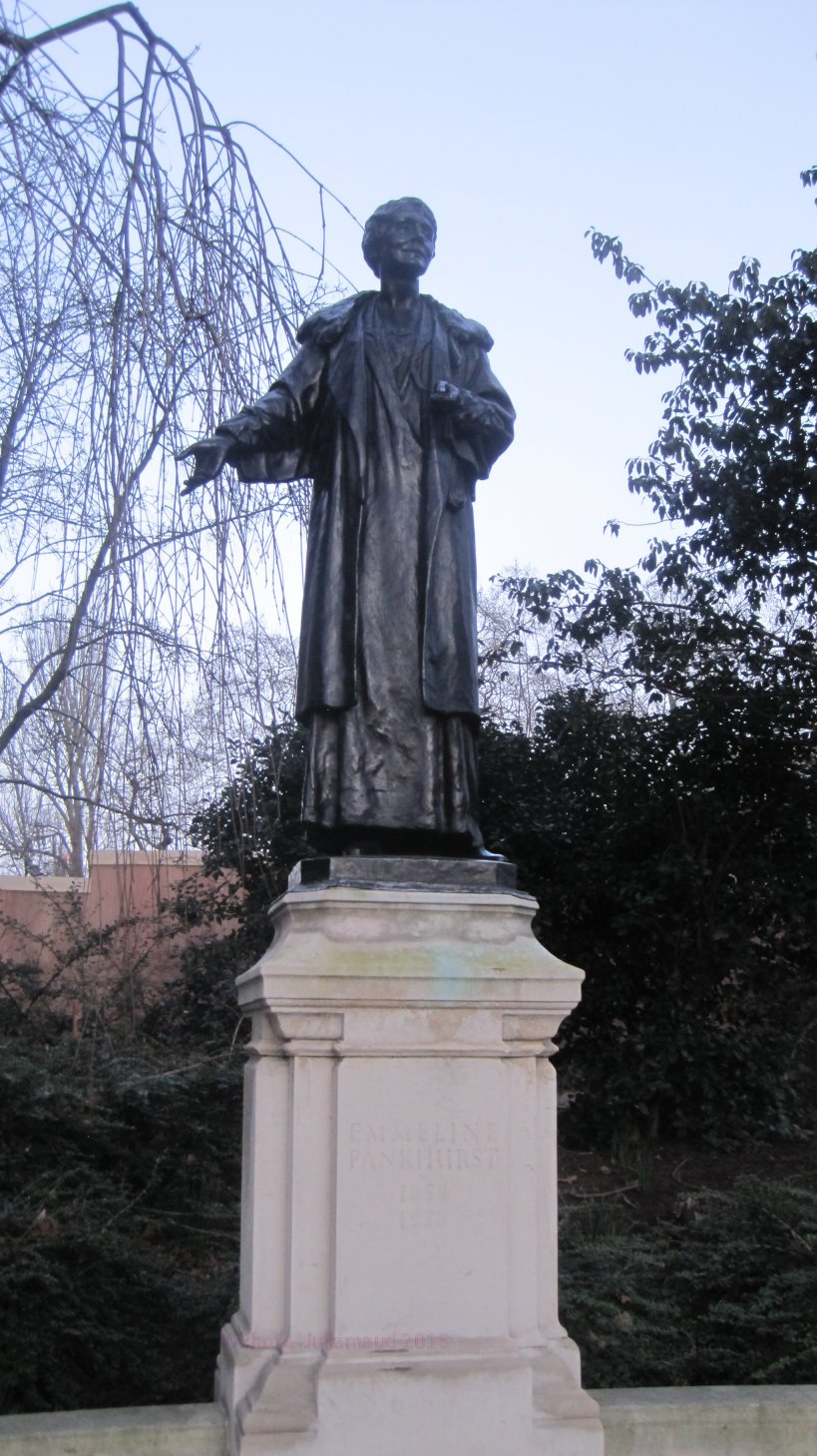Early years
Emmeline Pankhurst was born Emmeline Goulden in Moss Side, Manchester on July 15th, 1858. She attended the École Normale Supérieure finishing school in Paris in 1873. Returning to England, she married Dr Richard Pankhurst in 1879. She was 20, he was 44. Dr Pankhurst was a socialist and a supporter of radical causes, including women’s rights. He encouraged Emmeline in her support of the Women’s Franchise League, until his death in 1898.
Women’s Social and Political Union
In 1903, she founded the Women’s Social and Political Union, a women-only group dedicated to obtaining equal votes for women. The group used militant tactics including cutting telephone lines, attacking the home of Chancellor David Lloyd George, sending letter bombs and chaining themselves to railings. Christabel Pankhurst, Emmeline’s daughter, became a leading member of the group and in 1905, became one of the first suffragettes to be imprisoned, after shouting for votes for women and interrupting a Liberal Party. Emmeline herself was imprisoned a number of times. She went on hunger strike in Holloway prison and was force-fed by officers. Another daughter, Sylvia, was a suffragist and communist activist, who designed many of the WSPU’s posters and banners.
World War I
On August 4th 1914, two days after World War I broke out, the leaders of the WSPU called an immediate halt to militant suffrage activism. In return the government agreed to release all suffragettes from prison. The following year, the WSPU changed the name of their newspaper from The Suffragette to Britannia. After the Great War, the Representation of the People Act 1918 extended the vote to all men over 21 and women over 30 who were property owners or graduates voting in a ‘university constituency.’
The interwar years
In 1926, Emmeline Pankhurst joined the Conservative Party and was selected as a candidate for Parliament in Whitechapel and St. George’s in 1928. She died on June 14th 1928 in a Hampstead nursing home at the age of 69. 18 days after her death, parliament passed the Representation of the People (equal franchise) act 1928, which gave women equal votes with men. For more details see http://www.biography.com/people/emmeline-pankhurst-9432764#synopsis and http://www.mirror.co.uk/news/uk-news/emmeline-pankhurst-10-things-you-3863303
